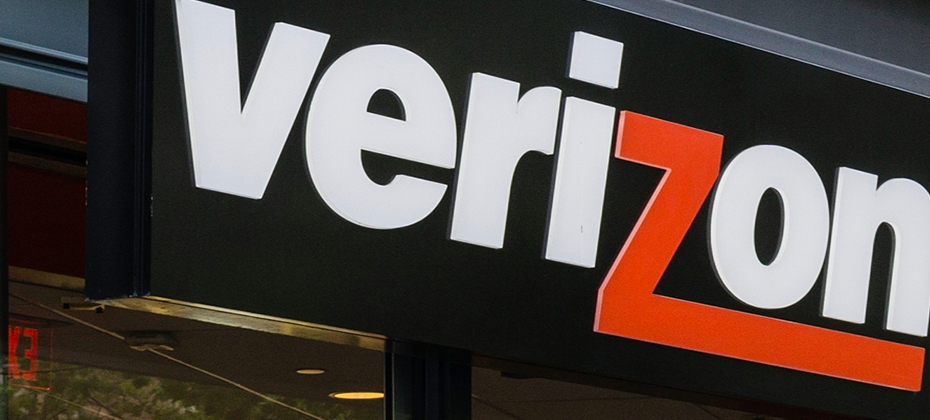
In this article…
Digital marketers face an ongoing challenge in the form of “walled gardens,” closed online ecosystems where it is difficult to access user data. As we get ready for 2024, it’s more important than ever for marketers to evaluate the current challenges and opportunities surrounding walled gardens and to take stock of the impact of walled gardens in marketing as an industry.
What is a walled garden?
A walled garden is a closed online ecosystem controlled entirely by one tech company. Advertising on these ecosystems is fairly locked down, as major tech companies with walled gardens tend to tightly control access to the user data, content, and advertising that appears within the ecosystems.
Some examples of walled garden ecosystems include Google, Facebook, Amazon, and Apple. These walled gardens have particular advantages, like access to massive user bases and precise targeting within the individual ecosystems. It can also be difficult to reach said audiences outside of the ecosystems, reducing the amount of control you have over your advertising strategies.
Learn more about walled gardens.
Learn the differences between walled gardens and hedged gardens.
Integrated marketing is more important than ever
Today, it’s become more crucial to connect with consumers over multiple touchpoints, which can be done from tech like connected TV (CTV) to websites, mobile devices, and even shopping in a physical store. However, as integrated marketing gains utility, many platforms with walled garden ecosystems have increased, making a truly integrated and personalized marketing strategy more difficult in many situations. As a result, many marketers have realized the value of a more streamlined marketing approach, emphasizing the importance of fully integrated advertising strategies.
Though there are surely marketing advantages to gain from walled garden ecosystems, especially in audience size, the challenges they pose will require you to innovate and find more creative ways to engage with your audience from platform to platform.
Perspectives on walled gardens from Cannes Lions 2023
Offering a poignant view of industry trends and ideas, the Cannes Lions International Festival of Creativity of 2023 had much to say about the significance of walled gardens in the marketing world. Let’s look at two key takeaways from this year’s festival.
Retail media
In recent years, many retail companies have started selling ad space within their own walled garden shopping platforms, dubbed “retail media.” Platforms like Amazon and Walmart have developed their own particular advertising ecosystems where they sell ads to marketers within the shopping environment itself.
Navigating the sell-side of retail media’s walled gardens
While retail media offers marketers unique opportunities, it’s not without its challenges. For one, ad space in these environments is limited, so the competition can be difficult on the sell-side, leading to higher ad costs. Additionally, this shift in dynamic also forces marketers to change how they prioritize their marketing channels, looking closer at the results of their efforts rather than focusing on particular channels within the platforms themselves.
Opportunities in the buy-side of retail media’s walled gardens
Brands on the buy-side see various benefits from advertising within retail media channels and walled gardens. By browsing in an online shopping environment, the users in these ecosystems are likely high-intent shoppers, people who are further down the sales funnel and who are ready to make a purchase soon. Shoppers can also be precisely targeted within these environments, as marketers are given the ability to access very specific audience segments based on details like shopping behavior, preferences, and even purchase history.
Omnichannel marketing
To more effectively engage audiences even among an abundance of walled garden ecosystems, speakers at the 2023 Cannes Lions Festival discussed the importance of omnichannel marketing. By emphasizing strategies that reach the consumer through multiple touchpoints, marketers can deliver a unified brand experience across channels. This allows marketers to focus more on results than specific advertising channels, including walled garden platforms.
Walled gardens aren’t going away in the near future
Though various challenges are associated with walled gardens in advertising, they aren’t going anywhere. So, what’s the current state of these environments throughout the industry?
Efforts are being made to break down walled gardens in tech
In a handful of countries, regulatory actions have been put forward to address how dominant many major tech companies are in their respective markets. One major example of this is Meta and Google’s entanglements in Canada. Currently, neither company can display news on their websites in the Canadian market. This decision was reached to give Canadian news agencies more control over their advertising revenue since, previously, the tech giants received more views and, therefore, gained the ad revenue. Though relatively small, this does indicate a certain shift in dynamic.
Why companies are resisting
Despite their challenges, walled gardens in 2023 persisted, mainly because they are particularly adept at generating revenue for the tech companies that control them. In 2022, 78 percent of global digital advertising revenue came from these closed ecosystems, and projections expect that figure to rise to 83 percent by 2027. From the viewpoint of a company that operates in a walled garden, the idea of releasing their control over their environment represents losing out on a stream of vast revenue, making letting go of a walled garden ecosystem an unattractive prospect.
The future of walled gardens
As time progresses, what can digital marketers like you expect from walled garden ecosystems in the near future?
A cookieless future
A huge element to consider is the transition to a cookieless future. Many major browsers have begun phasing out the use of third-party cookies. In the wake of this decision, many are looking for reasonable alternatives that allow for behavior tracking and more personalized advertising experiences. Solutions like Experian’s identity resolution can provide a strong alternative option, allowing marketing strategies to adapt to the current landscape.
An influx of mini gardens
You should also anticipate the proliferation of various smaller, specialized walled garden ecosystems in the future. These so-called “mini gardens” specialize in more niche audiences and industries, and they can present their own challenges and opportunities.
Alternative IDs
As you search for new identification methods outside cookies, various alternatives have presented themselves, requiring further exploration and experimentation. Among these are privacy-compliant solutions like Unified ID 2.0, which allow you to serve more personalized ads without compromising the consumer’s privacy.
Navigating the evolving landscape of walled gardens in 2024
As we begin 2024, you will continue facing opportunities and challenges regarding walled gardens. The 2023 Cannes Lions International Festival of Creativity re-emphasized how important it is for marketers to stress omnichannel marketing within walled garden environments and become well acquainted with identity resolution solutions as we move into a cookie-less future. All of this requires you to become comfortable with walled gardens being here to stay and innovate to navigate an evolving and developing landscape.
We’re here to help you navigate the evolving landscape of walled gardens in 2024. Contact us today.
Latest posts

Five steps to keep valuable email subscribers in response to Verizon’s email service deactivation.

Ensure you understand privacy compliance pitfalls with special attention on shopping cart abandonment emails.

Partnership combines customer connections and cross-device scale to deliver more strategic customer insights NEW YORK AND CHICAGO — March 16, 2017 — Signal, the global leader in customer identity, today announced a partnership with Tapad, now part of Experian and the leading provider of unified, cross-screen marketing technology solutions. This global integration extends device connectivity for Signal’s clients across North America, APAC and EMEA by leveraging Tapad’s proprietary Device GraphTM. With Signal’s Customer Identity Solution, brands benefit from more visibility of known customers, lower costs to reach those customers and decreased expenses and data loss that often results from using multiple vendors. Integrating with Tapad’s Device Graph, which connects billions of devices, enables Signal clients to build an even broader view of their known customers across multiple devices. This integration combines Signal’s customer identity scale with Tapad’s device scale to expand the reach of addressable media channels and enhance customer journey insights across touchpoints. Tapad and Signal were able to drive incremental device connections for more than 65 percent of customer profiles, linking an average of 6.8 browsers and devices per customer. With this combined data set, Signal clients can expand their authenticated view of a customer to all associated devices and realize more strategic insights into their high-value users. The partnership also allows Signal’s clients to integrate in real-time with Tapad’s media platform, Unify. This proprietary technology enables advertisers to make real-time activation and buying decisions with maximum scale, as well as automated reporting and measurement. “Continuously recognizing customers across devices instantly and in a privacy-safe way is essential for marketers to stay competitive,” said Marc Kiven, founder and CRO of Signal. “We are thrilled to enter this unique, global partnership with Tapad, enabling our clients to access their technology and more effectively reach customers in real-time and at scale.” “Being able to leverage a persistent view of customer connections across devices is a huge challenge for brands,” said Pierre Martensson, SVP and GM of Tapad’s global data division. “With Tapad, Signal is now able to connect with the billions of existing data points in our device graph to help clients better understand customer behavior and realize even stronger customer engagement.” Contact us today